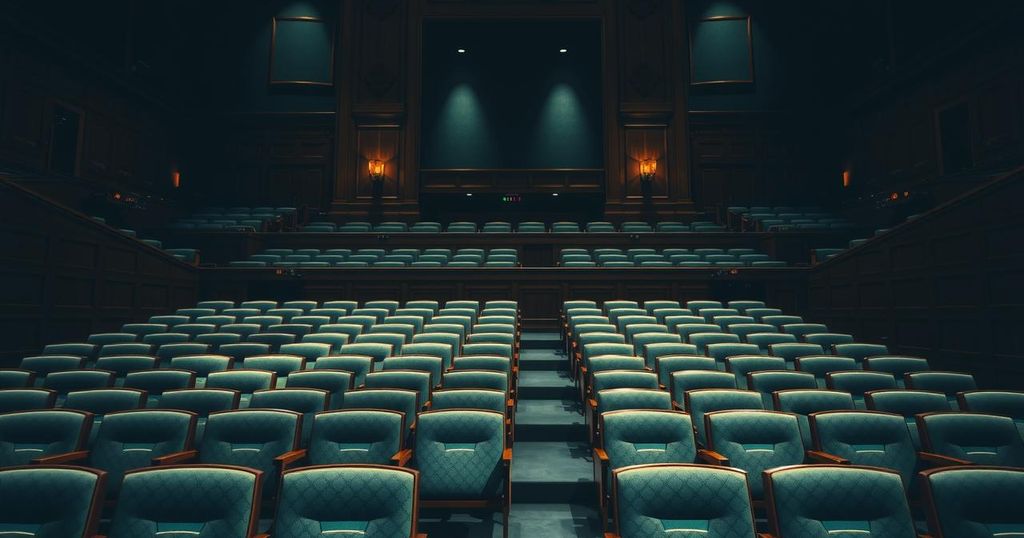The Decline of Opposition Influence in Nigeria’s House of Representatives
The opposition in Nigeria’s House of Representatives has significantly weakened, with defections and internal conflicts eroding its influence and effectiveness. Initially holding a majority in the 10th National Assembly, the opposition has since seen a decline in numbers and cohesion, raising concerns about the future of democratic governance in Nigeria. Political analysts warn that without a strong opposition, the country risks sliding into a one-party system.
The opposition in Nigeria’s House of Representatives has experienced a significant decline, transforming from a fierce dissenting force into a more subdued entity. This deterioration is attributed to defections, internal party conflicts, and the overshadowing political influence of the ruling All Progressives Congress (APC). Once a strong counterbalance, the opposition now appears fragmented and ineffective, lacking the necessary strength to challenge the current administration adequately.
At the commencement of the 10th National Assembly in June 2023, the opposition parties held a promising majority with 182 seats compared to the APC’s 175. The People’s Democratic Party (PDP) led with 118 members, followed by the Labour Party (LP) and the New Nigeria Peoples Party (NNPP). This numerical advantage suggested a potential for robust engagement in governance matters; however, this promise has largely dissipated.
Over the past two years, the opposition has seen a dramatic reduction in both members and influence. Defections significantly impacted the opposition’s composition, with numerous members shifting allegiance to the APC; these include at least six lawmakers from the PDP and six from the LP. Rather than presenting a united front, many opposition figures have opted for silence and aligned with the ruling party, prioritizing their political survival over collective resistance.
The allure of political patronage has contributed greatly to this shift. Lawmakers are enticed by the APC’s control over executive resources, making defection a tempting choice. For those choosing personal advancement, the benefits offered by the ruling party are often too strong to deny. Conversely, remaining within the opposition presents risks of exclusion from critical decisions and development projects.
Internal strife within the opposition parties has exacerbated their difficulties, particularly within the PDP, which has faced leadership and factional challenges. Although the LP gained momentum post-2023 elections, it struggles to maintain member engagement due to a lack of strong organizational structures. As a result, lawmakers have found it easier to leave than to remain involved in what feels like a stagnant political fight.
The absence of a powerful opposition bears serious implications for democracy in Nigeria. Political analyst Innocent Awuzie has expressed concern that without effective checks and balances provided by a robust opposition, the ruling party may enact legislation without sufficient debate and scrutiny. This situation undermines the core principles of democratic governance—where diverse perspectives compete for attention and influence.
The consequences extend beyond the legislature. When opposition lawmakers defect, they carry away public support and funding, making it increasingly challenging for opposition parties to compete in future elections. If this trend persists, Nigeria risks transitioning towards a one-party system where meaningful electoral competition diminishes.
To restore its relevance, the opposition must address internal disputes, strengthen party discipline, and articulate a viable alternative vision for governance. Political analysts underscore the need for lawmakers to resist the temptation of immediate power and instead commit to fostering a dynamic and vibrant democratic landscape. Failure to act may render the Green Chamber a mere extension of the ruling party’s agenda, diminishing opposition voices to mere whispers.
The decline of opposition voices in Nigeria’s House of Representatives marks a concerning shift in the political landscape, characterized by defections and internal conflicts. With the potential for one-party dominance threatening democracy, it is imperative for opposition parties to reclaim their strength by resolving internal issues and focusing on a clear governance vision. Without these efforts, the vibrancy of Nigeria’s democracy may continue to erode, leaving a muted Assembly in its wake.
Original Source: businessday.ng




Post Comment